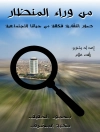In ‘Anthropology, ‘ Daniel G. Brinton offers an incisive exploration of the human experience through a comprehensive lens that intertwines ethnography, archaeology, and cultural studies. Written in the late 19th century, Brinton’s style reflects the intellectual currents of positivism and evolutionism prevalent in his day, while also challenging prevailing racism and ethnocentrism. His work is marked by meticulous observation and an earnest curiosity about indigenous cultures, examining their languages, beliefs, and societal structures. Brinton’s emphasis on the interconnectedness of human societies serves as a precursor to contemporary anthropological thought. Daniel G. Brinton, a prominent American archaeologist and anthropologist, dedicated his career to the study of Native American cultures and their languages. His academic journey was deeply shaped by his fascination with the diversity of human cultures and a lifelong commitment to advancing the field of anthropology. Brinton’s multidisciplinary background in linguistics and natural sciences bolstered his holistic approach, enabling him to assert the importance of cultural context in understanding human behavior. Brinton’s ‘Anthropology’ stands as an essential read for scholars, students, and anyone intrigued by the complexities of human societies. It invites readers to engage with the rich tapestry of cultural differences and evolutionary narratives, making it a thought-provoking addition to the canon of anthropological literature.
Tentang Penulis
Daniel Garrison Brinton (1837-1899) was a prominent American archaeologist and ethnologist, recognized for his extensive work in the field of anthropology. Trained as a physician, Brinton served as a surgeon during the Civil War, but his interests shifted as he delved into the study of human cultures and languages. After the war, he actively pursued a career in anthropology, which was then an emerging field. Brinton’s scholarly contributions are evident in his works, including the influential ‘Anthropology’ published in 1890, where Brinton challenged the racial theories of the time and emphasized cultural processes in human development. His other notable works include ‘The Myths of the New World’ (1868), where he systematically compared the mythologies of various indigenous cultures of the Americas, and ‘The American Race’ (1891), in which he argued for a singular origin of indigenous American peoples, a hypothesis debated among his contemporaries. Brinton’s academic endeavors were recognized through his appointment as Professor of American Archaeology and Linguistics at the University of Pennsylvania, and his leadership as president of various learned societies. His literary style often involved a thorough and comparative analysis of linguistic and cultural data, pioneering methods that would later be foundational to modern anthropology. Despite some of his theories being contested or deemed outdated by later scholars, Brinton’s impact on the establishment of anthropology as a scientific discipline is significant.












